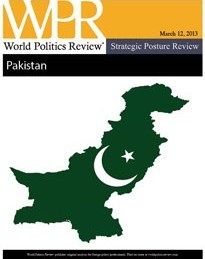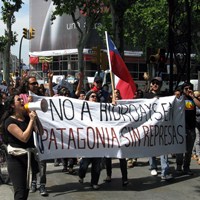
In the face of persistent violence in Mexico, citizens are increasingly forming vigilante groups they say are for self-defense. Estimates vary on how widespread the groups are; one recent report said such self-defense groups were active in 68 municipalities in 13 Mexican states. Adam Isacson, senior associate for regional security policy at the Washington Office on Latin America, told Trend Lines, “Basically, the police have broken down in a lot of these municipalities, and organized crime has moved in.” Yet while the groups claim to fight violence and extortion where the Mexican government can’t or won’t, there are concerns that […]














